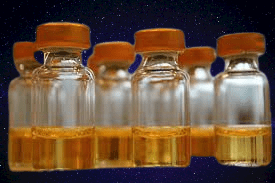ChromoGelTM Strep B Agar

The medium use for isolation and identification of Streptococcus B group
bacteria (Opaque background)
The Group B Streptococci (GBS), also known under the name of Streptococcus agalactiae, are the cause of numerous infections in adults but mostly an important cause of serious neonatal infections, occuring in the three first weeks of life. Studies indicate that approximately 12-27 % of pregnant women are colonised by GBS. (WHO, Infectious diseases, Group B Streptococcus). Detecting vaginal (and in some countries also rectal) colonisation by GBS in pregnant women is the most effective strategy to prevent infection transmission during baby delivery.
Worldwide, official guidelines recommend prenatal screening of GBS in the last month of pregnancy. In GBS-carrying women, this screening allows determining the need of intrapartum antibiotic prophylaxy, which has been proved effective in preventing the infections occuring in the first week of life (known as early-onset GBS infections).



